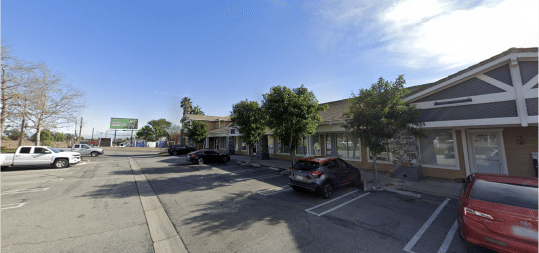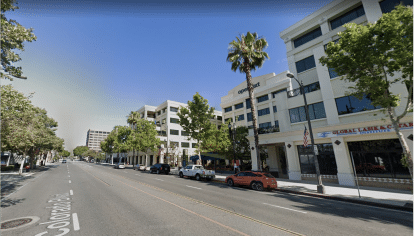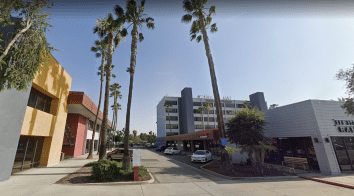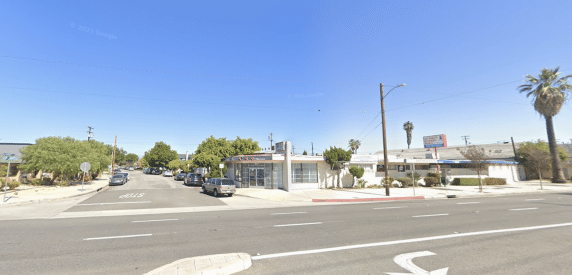
Finding a family member or close friend in jail unexpectedly can be frightening. It's worse if you're the one being detained. When you or a family member find themselves in this situation, there are solutions to get out of custody quickly.
At Cali Bail Bonds in El Monte, we understand the anxiety and stress you're feeling. We also recognize that being at home allows you to better collaborate with your attorney and get ready for your impending court appearance. This is why we strive to return you home as quickly as possible.
While the bail procedure is typically consistent across a county, some police stations may use their own rules and regulations whenever it comes to freeing an individual from custody. The majority of the jails in Los Angeles County follow the same set of guidelines.
The El Monte Police Department, which has a prison unit at its station, protects the city of El Monte. When an individual engages in a crime and is arrested and transported to the El Monte prison, he or she will be subjected to a standard check-up before being processed into detention. Typically, a live scan and a DNA sample are taken during booking.
The defendant will be issued a booking number, and the fingerprints will be sent to the Department of Justice for a background check and to see whether the individual in custody has any outstanding warrants or liens that would restrict him or her from bailing out and facing the charges.
When you call an agent, he will promptly notify the jailers at the El Monte Police Department and acquire all of the necessary information to complete the bail transaction and release the prisoner. A bail agent may meet you at the custody and prepare a set of basic documentation, including a bail application. The accused will be freed shortly after, along with a schedule for his or her first court hearing.
The accused must attend all court hearings until the matter is resolved and the bail is canceled. The accused will be re-arrested if he or she violates the court's instructions.
Most people relate bail with a certain amount of money. The main concept is, you may only be released from jail if you have enough money to post bail after being arrested. However, bail is much more complex than that, particularly when the bond amount is high.
Several bail options may be offered in every state or region. While certain forms of bail are not accessible in all states or situations, and some are used more frequently than others, defendants should anticipate facing one or more of the following bail options:
These are two types of prison releases that the police department can grant at their discretion. You simply agree to attend court on a certain day and sign the paperwork, and you are let free. Even though no payment is necessary for these procedures, failure to attend court will result in a fine. You might have to fight for a Recognizance Release in court if required, but hiring an attorney could be more expensive than getting a bail bond.
If you've been accused of a federal crime, you'll need a Federal Bail Bond. It may be acquired using cash or property as security, although it is more expensive than a traditional bail bond. It is usually done with the court directly.
If you are a non-resident or a foreign national, you will need to acquire an Immigration Bond. An Immigration bond might be difficult to acquire due to your legal status, and you are only qualified after meeting specified requirements.
If your offense is serious and the court cannot reject your bail, but you are an escape risk, a Cash Bail is frequently used. The bail will be raised significantly in such situations that posting it in cash would be nearly impossible.
Your bail money, excluding administrative costs, will be refunded once you have completed your responsibilities. Unfortunately, you will not be able to access your funds until 60 - 90 days once your trial has ended.
In case the bail amount is large or you don't have access to money, surety bail bonds come in handy. It entails entering into an agreement with a bondsman to set terms for your release. It is usually 10% of the bond amount and requires a commitment to attend court on a set day.
When you fail to appear, your bond agent will be held liable for the whole amount of bail and may hire a bounty hunter to catch you. These bonds are simple to obtain, and many bondsmen will work with you on service contracts that are convenient for you.
A property bond permits the court to take your asset as payment for your release instead of money. Even if any form of property can be used, the most frequently used is real estate. The estimated value of the asset must be double your bail value, and your whole ownership of the property serves as security. The procedure is lengthy, and if you fail to attend court, you risk losing your property.
Before you get out of custody, the court decides the amount of bail you'll have to post. If you pay the bail yourself, you will have to pay the whole sum, which the state will refund you after your court hearing has been completed. That's the standard protocol. Every bail bonds company is different, and that is why you should talk about how much cash you need to pay or the amount the bail bonds company offers.
Ensure that both sums are specified properly in your contract. Additionally, you have to ask if you'll require a co-signer, whether you must hand over any possessions, or if you'll have to submit your work information to the bail bonds company.
Most people believe that if they call a bondsman, they will be able to get out of custody immediately. That isn't always the case. The length of time it takes for the bondsman to secure your release is influenced by several factors. The following are some of the influencing factors:
Understanding the time that the bail bondsman will probably take enables you to plan for things such as transportation to your home and when you could get back to your job.
The person who takes out a bond is known as a co-signer or guarantor. Persons who are incarcerated are often not able to pay bail to get themselves out and must rely on a family member or friend on the outside to do it.
A co-signer has many obligations. They are the individuals that call a bail agency and organize the bond to ensure that a defendant is released from custody. You'll need to undertake a few things to do this.
First and foremost, you are accountable for paying the bail bond premium. This is often a payment equivalent to 10 percent of the total bond's face value. It can be thought of as a nonrefundable service charge or deposit.
It's worth noting that bail bonds are valid for a year. If one hearing lasts more than a year, you as the co-signer have the option of paying an additional fee equivalent to the first or otherwise not paying the premium at all, forcing the accused to seek a new cosigner or return to jail.
It becomes your responsibility as a guarantor or the individual that puts up collateral, to ensure that the accused appears in court. All of this is important because if you miss court, you risk forfeiture or having your security placed on the line to pay the whole bail sum. To avoid this, a co-primary signer's goal is to ensure that the accused appears in court.
Co-signers might also choose to terminate a bond. It might be the outcome of other alleged criminal acts. Since co-signers sign promissory notes, they are financially accountable for the whole cost of an accused's bail. They have to seek the services of a reputable bail bond firm.
When assessing bail, courts usually place extra limits or obligations on the accused in addition to deciding the amount of cash that must be paid to be freed. These restrictions are comparable to those placed on persons sentenced to probation after being convicted of a crime.
Violations of bail terms can result in the defendant being taken back into jail until his or her case is heard, as well as the loss of any bail money paid. The following are some examples of bail conditions:
A no-contact order is usually imposed in instances when the accused is suspected of stalking, making violent threats, domestic abuse, or other related offenses. The accused must not contact the alleged victims of the acts.
Courts have the authority to order a criminal to work when on bail. In case the accused is jobless, the court may order that he or she look for work while on bail.
Defendants on a bail are usually not permitted to leave the region except if the court officially permits it.
Bail terms, particularly in situations concerning drug possession, drunk driving, or other related charges, usually require the offender to abstain from consuming alcohol or drugs. Restrictions on the use of firearms. Even if the accused crimes did not include the use of guns, bail terms may mandate the accused to abstain from owning firearms.
Honoring a bail bond is important for two reasons. Both the co-signer and the accused must ensure that all limitations, criteria, qualifications, and duties associated with accepting a bail bond are met. By observing these "regulations," you may rest confident that bailing somebody out of custody will have no unintended or unwarranted financial or criminal implications (for the defendant).
The main reason to ensure that the accused person appears in court is that as a co-signer, you have a vested interest or duty to do so. In addition to whatever bail fee you might have previously paid, you are liable for the full sum of the bail. Once you start the procedure of obtaining a bond for a family or friend, you risk losing your security, or the things you hand over to a bail company. Cars, houses, expensive assets such as jewelry, and other items are commonly used as security to cover the expense of a bail bond. The decision of what to use as security is a crucial part of the bail procedure.
Many problems could arise if you miss a court date as an accused person. If you skip a court hearing, judges will frequently issue a warrant for your detention, even if the violation is small. Because you refused to show up, the Court may make it difficult for you to be freed, potentially raising the amount of bail or sign over more assets, or order you to be detained without bail, meaning you will stay in custody till your court hearing is completed, regardless of how much you are willing to pay to be let out of jail.
You could also be charged with contempt of court. It could appear to be a minor infraction, however adding extra penalties or fines for such a crime would only make the situation worse.
Bail bonds are guaranteed by your basic rights, but the legal conditions for your release from jail vary by state. Because the bail sector in California is extremely competitive and the procedures can be complex, be certain the bail company you hire is reputable and competent.
The Police Department in El Monte is responsible for the care, custody, and control of prisoners in a secure and well-maintained institution.
The El Monte Police Department may sometimes arrest prisoners and transport them for special housing in the Los Angeles County Jail. Inmates who are moved to the supervision of the Sheriff's Department in Los Angeles will be sent to one of the following facilities:
Detainees are sent to one among these two courts by the Custody Services Division:
Detainees are not returned to the El Monte Police Department Jail once they have been taken to court. They are either freed or moved to the County Jail in Los Angeles.
At Cali Bail Bonds, we understand the anxiety and worry that come with being arrested. This is why we go to great lengths to guarantee that anyone who contacts us is handled with the utmost respect. We have a professional bail bondsman ready for your call at any hour of the night or day. Call us right now at 562-376-5476 to talk to our El Monte bail bond agent.
"*" indicates required fields






